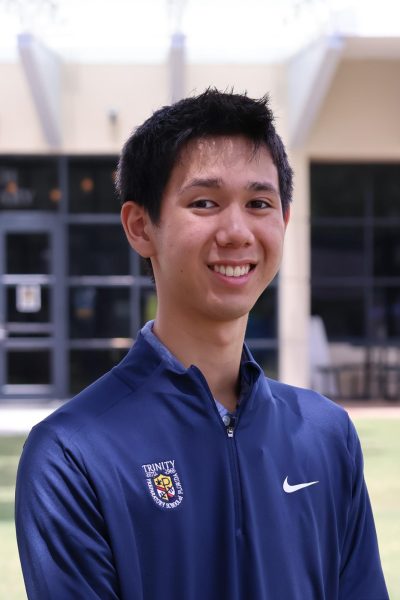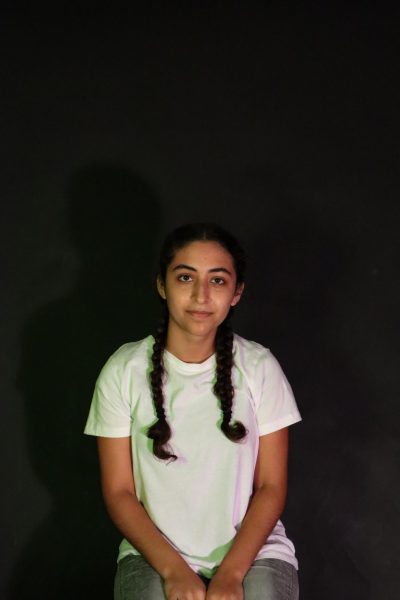The pressure on high schoolers to find their passions is immense. From playing T-ball and an instrument as a kindergartner to joining clubs in high school, the hope is that something will spark an interest. Another way students explore their numerous interests is by enrolling in different elective courses, like photography or computer science.
Unfortunately for students, it is not always so easy to take a variety of electives in their areas of interest. Trinity, along with other high schools across the state, set a high number of graduation requirements for a range of non-core classes. On top of core classes, Trinity requires two credits of language, one credit of fine arts, and a half credit for computer science, physical education, life management and ethics. That means that five of the 12 year-long, non-core class slots that are available through high school will be filled by required classes. There is some reasoning for class requirements to be high though.
“Part of it is that we are rooted in a liberal arts education, which means that you want to have that well-rounded component, which would include the fine arts and exposure to computer science,” Director of Learning and Instruction Stephanie Dryden said. “To be a fully developed human being, it’s important to try those different areas. And so we’re committed to that as a school.”
While these course requirements have merit, one could argue that they also restrict students’ ability to pursue a variety of electives that kindle their curiosity. Students are not always able to take multiple years of their favorite electives if several precious class slots are filled with classes taken for the purpose of credit fulfillment. Following interests is important for students because according to the National Library of Medicine, interest is “a powerful motivational process that energizes learning, guides academic and career trajectories and is essential to academic success.”
“By pursuing your interest, you’re going to get more prepared for college,” sophomore Matthew Gu said. “If you’re already set on a particular job or a major, doubling up on classes or focusing on certain classes can help you do that.”
The admissions office at the University of South Florida estimated that up to 50% of students enter college undecided on their major. This can make it harder to create a sense of focus on your college application, and students may end up spending their first years of college without a clear idea of what they want to study.
Often, just one or two semesters in an elective can only give students the basics and hook them on a subject. It usually will not provide in-depth or advanced knowledge about a subject, which is why it is crucial that students have the opportunity to continue studying that elective for all four years of high school. However, students often do not have the flexibility to pursue four years of multiple electives after factoring in all of the core and non-core class requirements. For example, if a language-loving student wanted to take four years of two different languages as well as four years of Journalism at Trinity, it would not be possible to satisfy all of their graduation requirements.
In the long term, exploring interests early in high school is the first step toward choosing a fulfilling career that the student is passionate about. People who enjoy their jobs are more “optimistic, motivated, learn faster, make fewer mistakes and make better business decisions,” according to an article from the University of Southern California.
Students are recognizing the importance of capitalizing on electives.
“[Taking] AP Biology [as an elective] was a decision I made because when I was in Mr. Moretz’s class last year for my freshman year, I enjoyed learning about biology, and I wouldn’t mind doing another year of it,” sophomore Nathan James said. “If I do decide to pursue something in the medical career, I think AP Biology is a good start.”
Trinity’s graduation requirements most certainly will help to provide a well-rounded education to its students, and they should not necessarily be discarded. However, students should have more flexibility to take extra classes in subjects of interest and to pursue several semesters of electives. One way to implement this flexibility is to allow students to fulfill required credits by taking courses outside of school. For example, students could take a class in digital art or life management through an organization like Florida Virtual School, and then continue taking their desired elective at Trinity. This kind of option would open the door for students to dive deeper into their non-core subjects of interest and be ready to enter college with a clearer focus. While the Malone Schools Online Network does offer a few extra courses, they can only fulfill ethics and electives credits, not fine arts, computer science or any other credits. In addition to this, the selection of courses is limited, which restricts students’ ability to use MSON.











